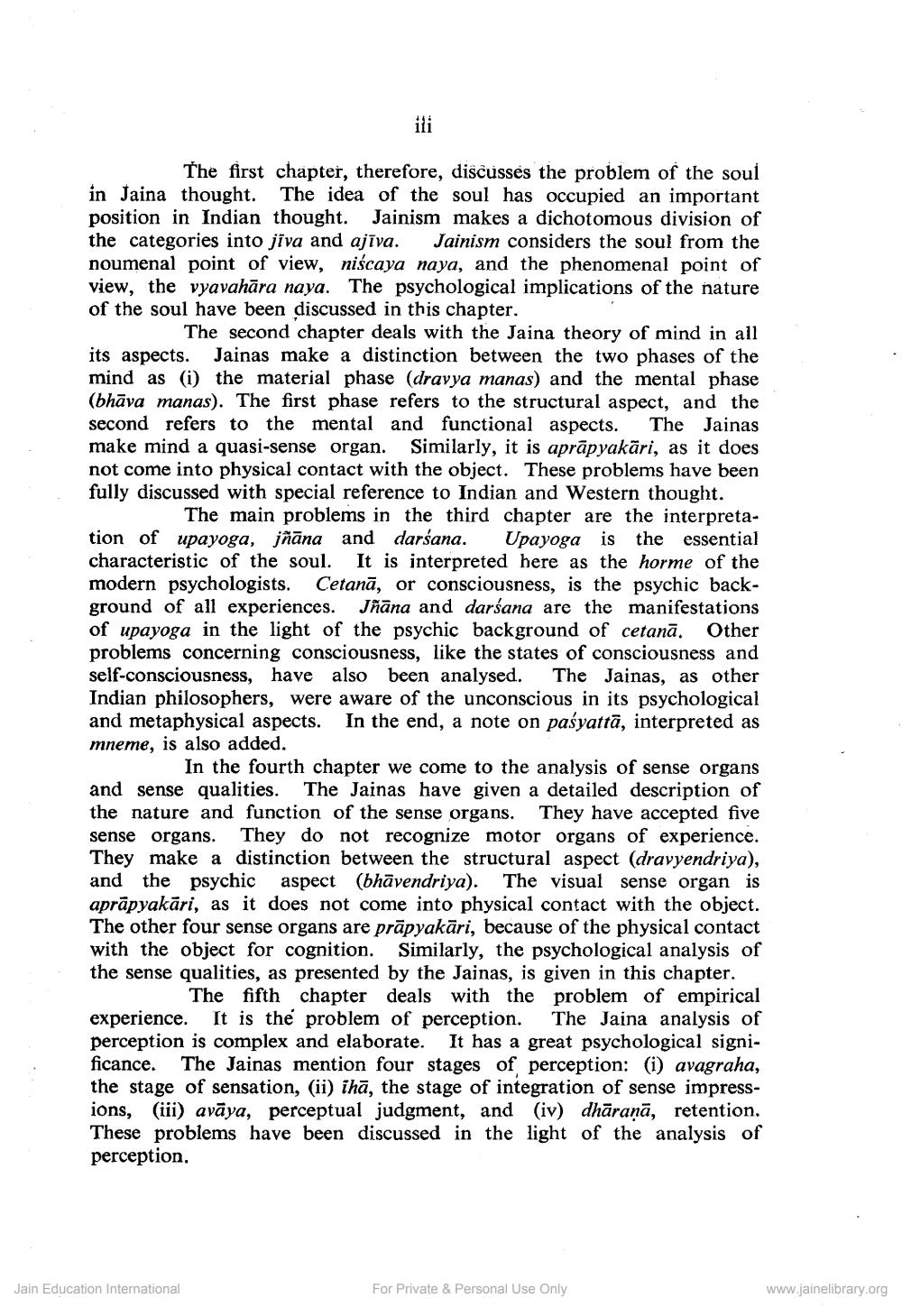________________
The first chapter, therefore, discusses the problem of the soul in Jaina thought. The idea of the soul has occupied an important position in Indian thought. Jainism makes a dichotomous division of the categories into jiva and ajīva. Jainism considers the soul from the noumenal point of view, niscaya naya, and the phenomenal point of view, the vyavahāra naya. The psychological implications of the nature of the soul have been discussed in this chapter.
The second chapter deals with the Jaina theory of mind in all its aspects. Jainas make a distinction between the two phases of the mind as (i) the material phase (dravya manas) and the mental phase (bhāva manas). The first phase refers to the structural aspect, and the second refers to the mental and functional aspects. The Jainas make mind a quasi-sense organ. Similarly, it is aprāpyakāri, as it does not come into physical contact with the object. These problems have been fully discussed with special reference to Indian and Western thought.
The main problems in the third chapter are the interpretation of upayoga, jñāna and darśana. Upayoga is the essential characteristic of the soul. It is interpreted here as the horme of the modern psychologists. Cetanā, or consciousness, is the psychic background of all experiences. Jñāna and darśana are the manifestations of upayoga in the light of the psychic background of cetanā. Other problems concerning consciousness, like the states of consciousness and self-consciousness, have also been analysed. The Jainas, as other Indian philosophers, were aware of the unconscious in its psychological and metaphysical aspects. In the end, a note on paśyattā, interpreted as mneme, is also added.
In the fourth chapter we come to the analysis of sense organs and sense qualities. The Jainas have given a detailed description of the nature and function of the sense organs. They have accepted five sense organs. They do not recognize motor organs of experience. They make a distinction between the structural aspect (dravyendriya), and the psychic aspect (bhāvendriya). The visual sense organ is aprāpyakāri, as it does not come into physical contact with the object. The other four sense organs are prāpyakāri, because of the physical contact with the object for cognition. Similarly, the psychological analysis of the sense qualities, as presented by the Jainas, is given in this chapter.
The fifth chapter deals with the problem of empirical experience. It is the problem of perception. The Jaina analysis of perception is complex and elaborate. It has a great psychological significance. The Jainas mention four stages of perception: (i) avagraha, the stage of sensation, (ii) ihā, the stage of integration of sense impressions, (iii) avāya, perceptual judgment, and (iv) dhāraņā, retention. These problems have been discussed in the light of the analysis of perception.
Jain Education International
For Private & Personal Use Only
www.jainelibrary.org




